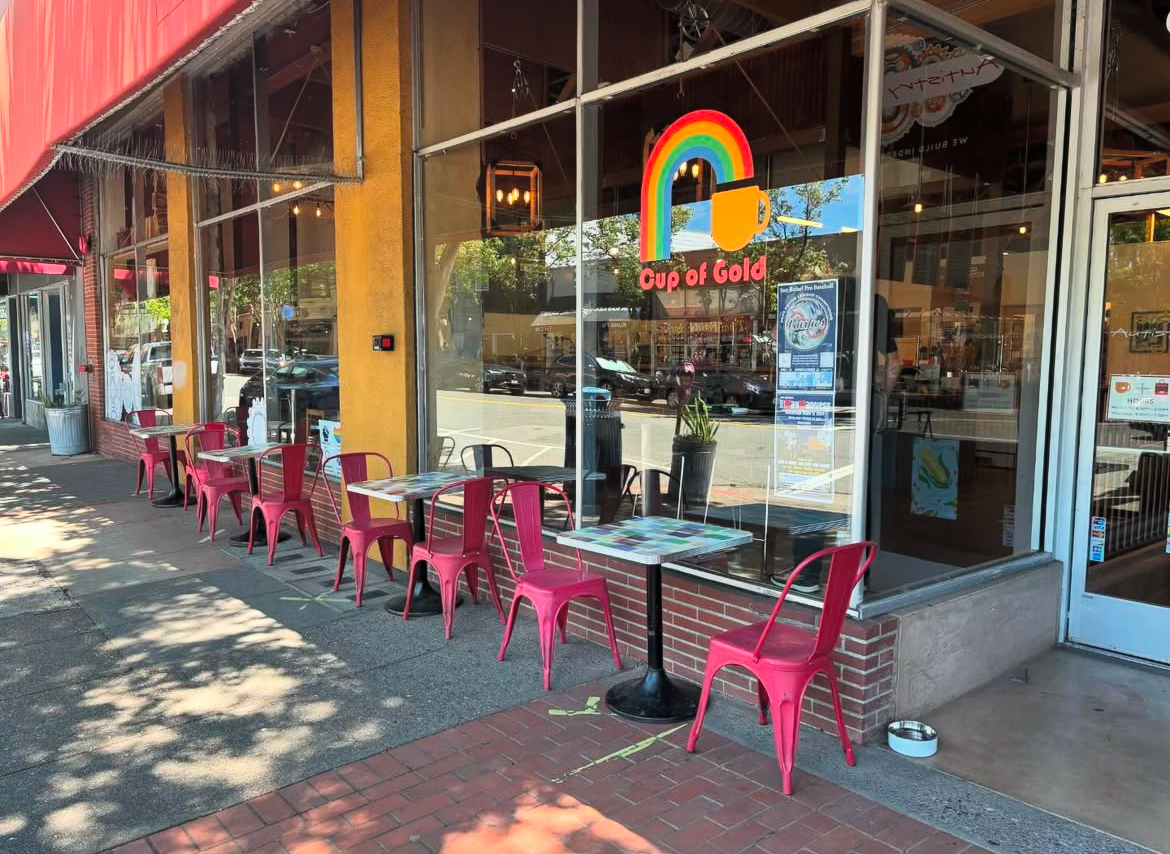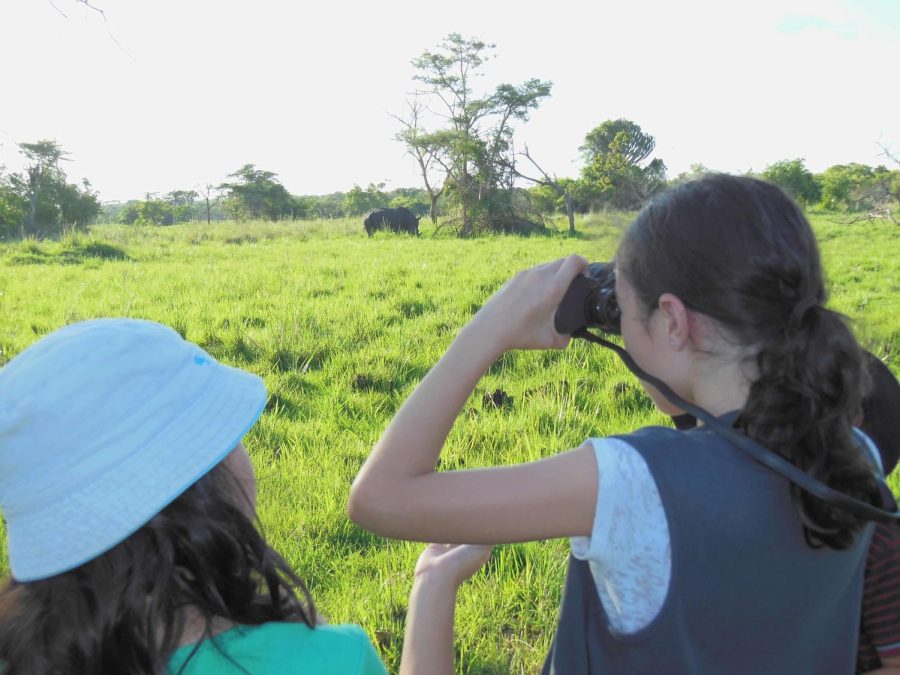Ugandan Shades of Red
March 23, 2022
The crashing sound of thunder shook the entire plane as the bright flashes of lightning peeking through the windows left almost every passenger paralyzed. Screams echoed in sync with the rough up-and-down turbulence. It felt like we were worms in a metal can being thrown back and forth by toddlers. In this traumatizing moment, suspended somewhat 30,000 feet in the air, I prayed we would make it through the storm, in one piece at least.
I recall gripping for dear life onto my sister, who was still as a rock, unable to comprehend the danger we were in. The beat of my heart didn’t dare slow back down until the gut-clenching drops of the plane smoothed over.
The journey back to the suburbs of Fairfax Virginia was eventful, to say the least.
For two years I lived abroad in the city of Kampala, Uganda. As part of their job in the U.S State Department, my parents had the life-changing opportunity to move our family to many unfamiliar but wonderful places, all over the world.
The red, dusty, dirt roads of Kampala seized my attention the moment we arrived there. People lived in huts, built out of rusty loose scrap metal. Buckets of murky water were collected from nearby rivers and wells. The streets were not paved; all there was to walk on was a path sprinkled with dirt that darted off in all different directions.
There were stray chickens and goats that wandered the roads and, on occasion, snuck under the protective gate of my house complex to feast on the leaves growing across the walls. A baby goat separated itself from its mother to nibble on some grass in my yard. Its fluffy white fur contrasted with the different hues of red in the hills that surrounded us in every direction.
I remember looking out of the window of the rusty, old van in which my siblings and I drove to school, and seeing the various markets we passed by. The markets were flooded with furniture of all different natures. Laid out on large white tarps were cushioned chairs, wooden tables, couches, and everything in between. The smell and sight of cooking meat and carts filled with sodas had me in awe.
I watched people swing huge cases of Coca-Cola over their shoulders and onto a loading truck. Driving through a market like this, it was common to pass a few shillings to a banana salesman who knocked on the window of your car.
The liveliness of almost every road I drove down in Uganda was unmatched by anything I had seen before. I could wave out the window, and in return, be greeted with at least ten more bright smiles from total strangers.
The precisely cut green grass, and bright leaves on the giant tree in my backyard were hidden away by the looming cement wall that surrounded my entire house. It was a speck of green in an ocean of dust.
There was a large and abandoned truck yard that sat right on the other side of the wall. It was used for storage, and as a hangout spot for Ugandan police. One night, some of the officers slipped through the protective gates of our house complex, as easily as the baby goat had done before, with the help of our own security guards. The smell of generator fuel polluted the air around our home the next morning.
I watched antelopes and hyenas run across the endless horizons over the African savanna. The giant tsetse flies pecked at my skin, hungry for something other than giraffe blood. A 10-foot long African rock python blocked the path right in front of our safari landcruiser, which startled me with a sudden stop. The beauty of the wildlife and even everyday views of the city made me fall in love with the country.
Back on the plane, I caught the scent of damp soil. I was reminded immediately of the rainy season we would experience every so often in Uganda.
As the feet of the plane glided back onto the ground, I felt safer than ever. The crashing thunder and panicked voices had silenced, and we were making our way back to a place far from the grass and baboon-infested savannas.
The tall iron giants that towered over me in the city were intimidating, but nothing compared to the lively and unique plains of the African grasslands.






































